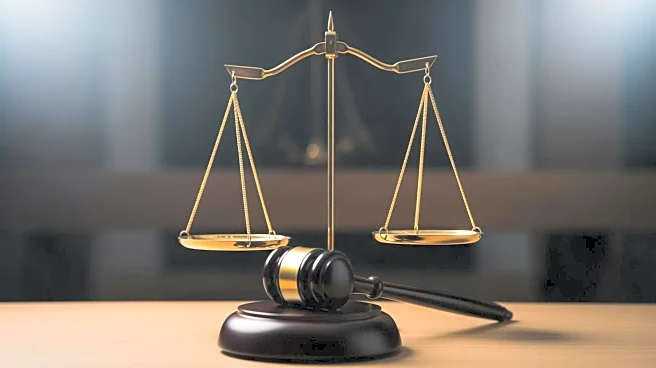What's Happening?
Former FBI Director James Comey has requested a federal judge to dismiss the criminal case against him, arguing that the prosecution is vindictive and selective. Comey, who is facing charges of lying to Congress and obstruction of justice related to the FBI's
investigation into alleged collusion between President Trump's 2016 campaign and Russian officials, claims the charges are driven by personal animus from President Trump. His legal team argues that the appointment of U.S. Attorney Lindsey Halligan was unlawful, as it was influenced by Trump's personal vendetta against Comey. The motion to dismiss includes evidence of Trump's public statements against Comey, suggesting a pattern of animosity.
Why It's Important?
The case against James Comey is significant as it highlights potential issues of political influence in judicial proceedings. If Comey's claims are substantiated, it could raise concerns about the integrity of the Justice Department and its independence from political pressures. The outcome of this case could impact public trust in federal institutions and set a precedent for how similar cases are handled in the future. Additionally, the case underscores ongoing tensions between former President Trump and individuals involved in investigations related to his administration.
What's Next?
The court will need to decide whether to dismiss the charges based on Comey's arguments of vindictive prosecution and unlawful appointment of the prosecutor. If the charges are dismissed, it could lead to further scrutiny of the Justice Department's actions and the influence of political figures on legal proceedings. Conversely, if the case proceeds, Comey faces the possibility of up to five years in prison if convicted. The decision could also prompt reactions from political leaders and legal experts, potentially influencing future appointments and prosecutions.
Beyond the Headlines
The case raises broader questions about the ethical and legal standards within the Justice Department, particularly regarding the appointment of prosecutors and the influence of political figures on legal processes. It also highlights the challenges of maintaining judicial independence in politically charged cases. The implications of this case could extend beyond Comey, affecting how future administrations handle similar situations and the public's perception of justice and accountability in government.

















